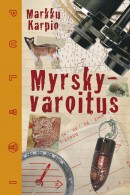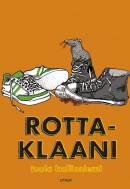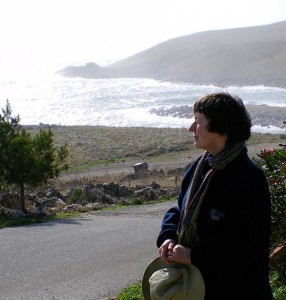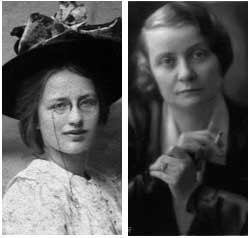Archive for February, 2009
Markku Karpio: Myrskyvaroitus [Storm warning]
24 February 2009 | Mini reviews
 Myrskyvaroitus
Myrskyvaroitus
[Storm warning]
Helsinki: Otava, 2008. 237 p.
ISBN 978-951-1-23000-7
€ 12, hardback
The main character’s quest for identity is a permanent theme of books for children in early adolescence. 11-year-old Emil, who lives with his mother in the outer Finnish archipelago, drifts into an emotional storm at an important moment in the construction of his identity. A storm warning on the radio means Emil’s African father will not be able to reunite with his son. The novel depicts the identity problems encountered by children of parents from different cultural backgrounds and their need for understanding from a wider perspective. A sub-plot concerns Emil and his new friends, and the strengthening of trust and tolerance between them. Markku Karpio (born 1961) portrays young boy’s tentative explorations sensitively.
Tuula Kallioniemi: Rottaklaani [The rat clan]
24 February 2009 | Mini reviews
 Rottaklaani
Rottaklaani
[The rat clan]
Helsinki: Otava, 2008. 192 p.
ISBN 978-951-1-23159-2
€ 16, hardback
Tuula Kallioniemi (born 1951) manages to deal with difficult issues without resorting to conventional solutions. Ykä, who is nearly 12, suffers from the normal anguish of early adolescence until the CP [cerebral palsy]-disabled Sami pushes his wheelchair into Ykä’s life. The boys decide to get the better of Antikainen who is bullying Sami, but in order to carry out their plan they need the help of quadraplegic Pete and Susanna, who has MBD [minimal brain dysfunction]. Kallioniemi’s literary prescription for the prevention of illness in young people is a simple one: we must all be friends with one other, be allowed to express wonder out loud, and remember that laughter is the best therapy. Kallioniemi’s merits are her verbal skills and her natural cultivation of situation comedy.
Dear reader,
11 February 2009 | Letter from the Editors
welcome to the new Books from Finland website. After 42 years in print, we now navigate virtual worlds. However much Books from Finland may have changed in appearance, though, its essence remains the same – as always, we try to provide you with interesting, well-translated things to read. Made in Finland, or about Finland. More…
Sofi Oksanen wins the 2008 Finlandia Prize
10 February 2009 | In the news

Sofi Oksanen. - Photo: Toni Härkönen/WSOY.
The Finlandia Prize for Fiction, Finland’s most prestigious literary prize, was awarded to Sofi Oksanen’s novel Puhdistus (‘Purge’, WSOY, 2008). ‘When the concentrated focus of drama and the multidimensionality of narrative conjoin, Puhdistus is born – a muscular, harsh, and solid book’, said the writer and critic Pekka Tarkka awarding the prize on 4 December. (For a short review, see the Review section.)
The prize, worth € 30,000, was awarded for the twenty-fifth time. The final choice was made from the shortlist of six candidates; the others were 14 solmua Greenwichiin (‘14 knots to Greenwich’, Otava) by Olli Jalonen, Kosmonautti (‘The cosmonaut’, Tammi) by Katri Lipson, Marie (Otava) by Arne Nevanlinna, Kohtuuttomuus (‘Excess’, Siltala) by Pirkko Saisio and Paholaisen haarukka (‘The Devil’s fork’, WSOY) by Juha Seppälä. More…
Sofi Oksanen: Puhdistus [Purge]
5 February 2009 | Mini reviews
![Sofi Oksanen: Puhdistus Sofi Oksanen: Puhdistus [Purge]](https://booksfromfinland.fi/wp-content/uploads/2009/02/puhdistusweb-130x164.jpg) Puhdistus
Puhdistus
[Purge]
Helsinki: WSOY, 2008. 380 p.
ISBN 978-951-0-33973-2
€ 29.90, paperback
Sofi Oksanen’s first play Puhdistus (‘Purge’) was staged at Finland’s National Theatre in 2007. Oksanen (born 1977) has an Estonian-Finnish background and studied at the Theatre Academy. Puhdistus, her third novel, retells the story of her play about two women and moves through the past by flashbacks between 1939 and 1992. Aliide has experienced the horrors of the Stalin era and the deportation of Estonians to Siberia, but she herself has to cope with the guilt of opportunism and even manslaughter. More…
Digital dreams
4 February 2009 | Essays, Non-fiction
In this specially commissioned article, the first for the new Books from Finland website, Leena Krohn contemplates the internet and the invisible limits of literature.

Leena Krohn on the way to Cape Tainaron, Southern Peloponnese, Greece; this is where Europe ends. Her novel entitled Tainaron appeared in 1985. – Photo: Mikael Böök (2008)
The world wide web, whose services most of us now use for work or entertainment, is a greater invention than we have, perhaps, realised up till now: according to the writer Leena Krohn, it is nothing less than an evolutionary leap
Technology combats the limitations of our senses, geography, and time. The human eye can’t compete with the visual acuity of an eagle, or even a cat, but with the best telescopes it can see into the early history of the universe, with new electron microscopes it can distinguish individual atoms.
The human senses nevertheless have an unbelievably broad bandwidth. About a million times more data flows to our brains by means of our senses than we could ever grasp consciously. More…
Poems
2 February 2009 | Fiction, poetry
Edith Södergran (1892–1923) was born in St Petersburg to Finland-Swedish parents; she later lived in an isolated Karelian village on the Finnish side of the Russian border. She published only six collections of poetry, in her native Swedish, before her untimely death from tuberculosis and poverty at the age of 31. Her bold, intense, sensuous and visionary poetry has made her a classic of Finnish literature. Her letters to her friend, the writer Hagar Olsson, were published in 1955.
Violet dusks
Violet dusks I bear within me from my origins,
naked maidens at play with galloping centaurs...
Yellow sunlit days with gaudy glances,
only sunbeams do true homage to a tender woman’s body...
The man has not come, has never been, will never be...
The man is a false mirror that the sun’s daughter angrily
throws against the rock-face,
the man is a lie that white children do not understand,
the man is a rotten fruit that proud lips disdain.


 What do Jesus, Aesop and the writer Daniel Katz all have in common? The key to the mystery lies in the second of the three names: fables are a part of all their works. Jesus spoke famously in (animal) metaphors, and the Greek writer Aesop is regarded as the father of the genre.
What do Jesus, Aesop and the writer Daniel Katz all have in common? The key to the mystery lies in the second of the three names: fables are a part of all their works. Jesus spoke famously in (animal) metaphors, and the Greek writer Aesop is regarded as the father of the genre.